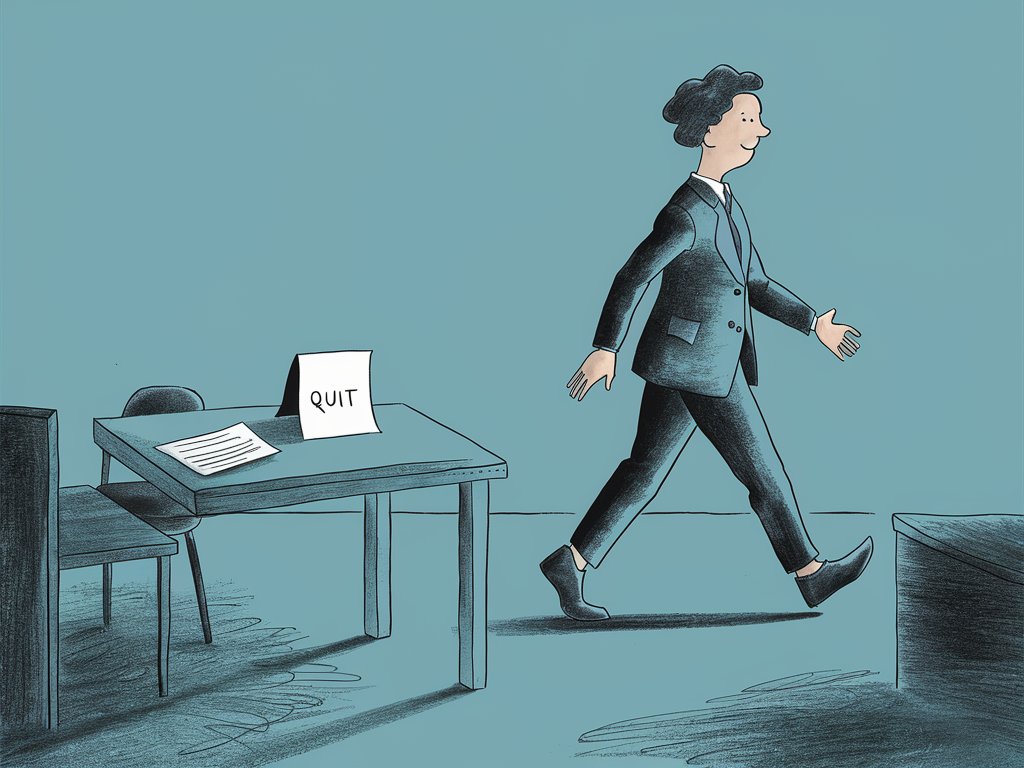Building confidence at work can be a game-changer. I know firsthand how daunting it can be to feel unsure of yourself in a professional setting.
Whether it’s speaking up in meetings, taking on new challenges, or simply feeling comfortable in your role, confidence plays a significant role in how we navigate our careers.
Over time, I’ve learned that confidence isn’t something that just happens—it’s something we can build, nurture, and strengthen.
In this blog post, I’ll walk you through practical steps to boost your confidence at work.
From understanding why we sometimes feel shy to mastering positive affirmations, each section is designed to help you grow and thrive in your career.

Why Do We Feel Shy in the Workplace?
Feeling shy at work is more common than we might think. I remember my early days in a new job, when I felt like I was walking on eggshells, worried about making mistakes or saying the wrong thing.
This shyness often stems from fear—fear of being judged, fear of failure, or even fear of success.
We might also feel shy because we’re unsure of our abilities or because we’re in an unfamiliar environment.
Another reason for shyness at work is a lack of confidence. When we don’t feel secure in our skills or knowledge, it’s easy to hold back and stay in the background.
This can lead to forgetting opportunities and a feeling of being stuck. I’ve been there, too, and I know how frustrating it can be.
But shyness doesn’t have to hold us back. By understanding why we feel this way, we can start to address the root causes and take steps to become more confident in the workplace.
It’s about recognizing that we’re not alone in feeling this way and that there are strategies we can use to overcome it.

Why Is Self-Confidence Important in the Workplace?
Self-confidence is like a secret superpower in the workplace. It’s what allows us to speak up in meetings, take on new projects, and push ourselves to grow.
Without confidence, we might find ourselves stuck in a cycle of self-doubt, missing out on opportunities to shine.
When you’re confident, you’re more likely to take risks, and taking risks often leads to personal and professional growth.
I’ve seen how confidence can open doors, leading to new challenges and opportunities that I wouldn’t have dared to pursue otherwise.
Moreover, confidence affects how others perceive us. When we’re confident, we’re seen as capable and trustworthy.
This perception can lead to more responsibilities, promotions, and a stronger presence in the workplace. It’s not just about feeling good—it’s about positioning ourselves for success.
On the flip side, a lack of confidence can be a barrier to achieving our goals. It can cause us to second-guess ourselves, hold back our ideas, and shy away from opportunities.
Building confidence is crucial not just for personal satisfaction but for career advancement as well.
Simple Life Hacks That Actually Work in 2024

Start by Practicing Self-Awareness and Self-Acceptance
The journey to building confidence starts with knowing yourself. Self-awareness is about understanding your strengths, weaknesses, and triggers.
It’s about being honest with yourself about where you excel and where you need improvement.
I’ve found that by taking the time to reflect on my experiences and reactions, I’ve been able to gain a better understanding of who I am and what I bring to the table.
Self-acceptance goes hand in hand with self-awareness. It’s about covering who you are, flaws and all.
None of us are examples, and that’s okay. By accepting ourselves as we are, we can stop comparing ourselves to others and start focusing on our own growth.
I’ve learned that when I accept myself, I’m less likely to be thrown off by criticism or setbacks.
To build confidence, start by practicing self-awareness and self-acceptance. Take time to reflect on your experiences, celebrate your strengths, and work on areas where you want to improve.
This foundation of self-knowledge and self-love will make it easier to build confidence and tackle challenges head-on.
24 Things You Cannot Live Without for a Fulfilling Life
Use Confident Language
The words we use have a powerful impact on how we’re perceived and how we perceive ourselves.
I’ve noticed that when I use confident language, not only do others take me more seriously, but I also start to feel more confident in my abilities.
Words have power, and the way we speak can either build us up or tear us down.
For example, instead of saying, “I think this might work,” try saying, “I believe this will work because…”. The difference may seem small, but it’s significant. Confident language is assertive and positive.
It shows that you believe in what you’re saying and that you’re not afraid to stand by your ideas.
Another tip is to avoid using self-deprecating language. Phrases like “I’m just…” or “I’m not sure if…” can undermine your confidence. Instead, focus on what you know and what you can do.
By speaking with conviction, you’ll project confidence and start to feel more confident in your role.
Practice using confident language in your daily interactions. Whether you’re speaking to colleagues, clients, or even yourself, the words you choose can reinforce your confidence and help you build a strong presence at work.

Be Confident in Your Body Language
Our body language speaks volumes, often more than our words. I’ve found that even when I don’t feel particularly confident, changing my body language can make a big difference.
Standing tall, making eye contact, and using open gestures can all contribute to a more confident appearance.
One of the easiest ways to boost your confidence through body language is to focus on your posture. Standing up straight, with your shoulders back, immediately makes you look and feel more confident.
It’s a small adjustment, but it can have a big impact on how you’re perceived.
Eye contact is also a key aspect of confident body language. When you make eye contact, you’re showing that you’re engaged and self-assured.
It can be intimidating at first, especially if you’re not used to it, but with practice, it becomes more natural.
Lastly, pay attention to your gestures. Open, relaxed gestures convey confidence and openness. Don’t cross your arms or fidget, as this can make you appear nervous or withdrawn.
By being mindful of your body language, you can project confidence even in situations where you might feel uncertain.

Give and Receive Feedback
Feedback is a critical part of growing and building confidence at work. It’s not always easy to give or receive feedback, but it’s an essential skill that I’ve learned to value over time.
When used correctly, feedback can be an effective tool for personal and professional development..
When giving feedback, be constructive and specific. Instead of focusing on what someone did wrong, highlight what they did well and suggest areas for improvement.
This approach not only helps others grow but also shows that you’re confident in your ability to guide and support your colleagues.
Receiving feedback can be challenging, especially if it’s not what you wanted to hear.
But I’ve come to see feedback as an opportunity for growth. Instead of taking it personally, I try to view it as a chance to learn and improve.
By accepting feedback with an open mind, you can gain valuable insights into your performance and build confidence in your ability to adapt and grow.
Remember, feedback is a two-way street. By giving and receiving feedback effectively, you can build stronger relationships, improve your skills, and boost your confidence in the workplace.

Face Your Fears
Facing your fears is one of the most effective ways to build confidence. I know this can be easier said than done, but I’ve found that the more I push myself out of my comfort zone, the more confident I become.
It’s about taking small steps to confront the things that make you nervous and gradually building your tolerance for discomfort.
For example, if you’re afraid of public speaking, start by speaking up in small meetings or practicing in front of a mirror.
Each time you push yourself to do something that scares you, you’ll find that it becomes a little easier. Over time, these small victories add up, and your confidence grows.
It’s also important to remember that everyone has fears, and it’s okay to feel scared sometimes. The key is not to let these fears hold you back.
By facing your fears head-on, you can overcome them and build the confidence you need to succeed at work.

Build a Supportive Network
A support network is essential to developing self-confidence. I’ve learned that surrounding myself with positive, encouraging people can make a world of difference.
Whether it’s colleagues, mentors, or friends, having people who believe in you and your abilities can boost your confidence and help you overcome challenges.
A supportive network provides a safe space to share your fears, seek advice, and celebrate your successes.
It’s comforting to know that you’re not alone and that there are people who want to see you succeed.
I’ve found that when I have a strong support system, I’m more willing to take risks and step out of my comfort zone.
Building a supportive network takes time and effort. It’s about fostering relationships based on trust and mutual respect.
By investing in these connections, you create a safety net that can catch you when you fall and lift you up when you need it most.

Celebrate Achievements
Celebrating your achievements, no matter how small, is an important part of building confidence.
I’ve noticed that when I take the time to acknowledge my successes, I feel more confident in my abilities and motivated to keep going.
It’s about recognizing the progress you’ve made and giving yourself credit for your hard work.
Celebrating achievements doesn’t have to be elaborate. It can be as simple as acknowledging a job well done, treating yourself to something special, or sharing your success with others.
The key is to take the time to reflect on what you’ve accomplished and to appreciate the effort you put in.
By celebrating your achievements, you reinforce the belief that you’re capable and successful.
This positive reinforcement builds your confidence and encourages you to take on new challenges with enthusiasm and determination.

Practice Resilience
Resilience is the ability to bounce back from setbacks, and it’s a critical component of building confidence. I’ve had my fair share of disappointments and failures, but I’ve learned that it’s not about never falling down—it’s about getting back up every time you do.
Resilience helps you stay confident even when things don’t go as planned.
Building resilience takes practice. It’s about developing a mindset that sees challenges as opportunities for growth rather than as obstacles.
I’ve found that by focusing on what I can learn from each experience, I’m able to move forward with confidence and optimism.
Another important aspect of resilience is self-compassion. When things go wrong, it’s easy to be hard on ourselves.
But I’ve learned that being kind to myself in these moments helps me recover more quickly and maintain my confidence.
By practicing resilience, you can build a strong foundation of confidence that will carry you through the ups and downs of your career.

Use Positive Affirmations
Positive affirmations are a simple yet powerful tool for building confidence. I’ve found that by repeating positive statements to myself, I can shift my mindset and start to believe in my abilities.
It might feel a little awkward at first, but over time, these affirmations can help reinforce your self-belief.
For example, I often use affirmations like “I am capable,” “I am confident,” and “I can handle anything that comes my way.”
These statements may seem basic, but they can have a profound impact on how you see yourself and your abilities.
The key to effective affirmations is consistency. It’s not enough to say them once and expect immediate results.
I’ve made a habit of repeating my affirmations daily, especially during moments of self-doubt.
By incorporating positive affirmations into your routine, you can build confidence from the inside out.

Know When to Quit
Knowing when to quit is an important part of building confidence. This might sound counterintuitive, but I’ve learned that sometimes, the most confident thing you can do is to walk away from a situation that isn’t serving you.
Whether it’s a toxic work environment, a project that no longer aligns with your goals, or a role that doesn’t allow you to grow, quitting can be a way of asserting your value and prioritizing your well-being.
It’s important to understand that quitting isn’t the same as giving up. It’s about recognizing when something isn’t right for you and having the confidence to make a change.
I’ve had to make tough decisions in my career, and while it wasn’t always easy, those choices ultimately led to greater confidence and satisfaction.
If you find yourself in a situation that’s draining your confidence, take a step back and assess whether it’s worth staying.
Sometimes, quitting is the best way to protect your confidence and move forward with a renewed sense of purpose.

Identify Your Confidence Killers
Finally, one of the most important steps in building confidence is identifying your confidence killers.
These are the thoughts, behaviors, or situations that undermine your self-belief and hold you back.
I’ve found that by recognizing what triggers my self-doubt, I can take steps to address it and prevent it from eroding my confidence.
Confidence killers can take many forms. They might be negative self-talk, perfectionism, or comparing yourself to others.
They could also be external factors like a critical boss, unrealistic expectations, or a lack of support. Whatever they are, the first step to overcoming them is awareness.
Once you’ve identified your confidence killers, you can start to develop strategies to counteract them. For example, if negative self-talk is a problem, practice replacing those thoughts with positive affirmations.
If perfectionism is holding you back, try setting more realistic goals and celebrating progress rather than perfection.
By addressing your confidence killers head-on, you can free yourself from the things that are holding you back and build a stronger, more resilient sense of confidence.
My Personal Story
I remember a time early in my career when I struggled with confidence. I was in a new role, surrounded by experienced professionals, and I felt out of my depth.
Every meeting felt like a test, and I was constantly worried about saying the wrong thing or making a mistake. It wasn’t long before my self-doubt started to affect my performance.
But then something changed. I realized that the only way I was going to succeed was by believing in myself. I started practicing self-awareness, identifying the areas where I felt most insecure, and working on them.
I began using confident language, paying attention to my body language, and seeking feedback from colleagues I trusted. Slowly but surely, my confidence grew.
It wasn’t an overnight transformation, and there were setbacks along the way. But each time I faced a challenge, I reminded myself of how far I’d come.
I celebrated my achievements, no matter how small, and surrounded myself with a supportive network of people who believed in me.
Looking back, I can see that those experiences were crucial in building the confidence I have today.
Taking Regular Breaks at Work is the Key to Productivity

FAQs About Build Confidence at Work
How can I boost my confidence quickly in a new job?
Start by practicing self-awareness and using confident language. Focus on small wins, seek feedback, and build a supportive network to help you settle in.
What if my workplace doesn't feel supportive?
If your workplace isn't supportive, consider building a network outside of work. Look for mentors, join professional groups, or connect with like-minded peers who can offer encouragement and advice.
How can I overcome negative self-talk?
Replace negative self-talk with positive affirmations. Practice self-compassion and focus on your strengths rather than your perceived weaknesses.
What should I do if I still feel shy at work?
Acknowledge your feelings and take small steps to overcome them. Practice confidence-boosting strategies like using confident language, improving your body language, and seeking feedback.
How can I maintain confidence during challenging times?
Practice resilience by focusing on what you can learn from each experience. Surround yourself with a supportive network and celebrate small achievements to keep your confidence up.
Key Takeaways
- Confidence is an expertise you can develop with practice.
- Understanding the reasons behind workplace shyness can help you tackle it head-on.
- Self-awareness and self-acceptance are the foundation of building confidence.
- Your words, body language, and how you give and receive feedback all contribute to your level of confidence.
- Facing your fears and building a supportive network are crucial steps in becoming more confident.
- Celebrating your achievements and practicing resilience will keep you motivated.
- Positive affirmations can reinforce your trust in yourself.
- Knowing when to quit and identifying your confidence killers are essential for maintaining a healthy level of confidence.
Building confidence at work is a journey, but with the right strategies and mindset, it’s a journey that leads to personal and professional growth. Remember, confidence is something you can build—one step at a time.




